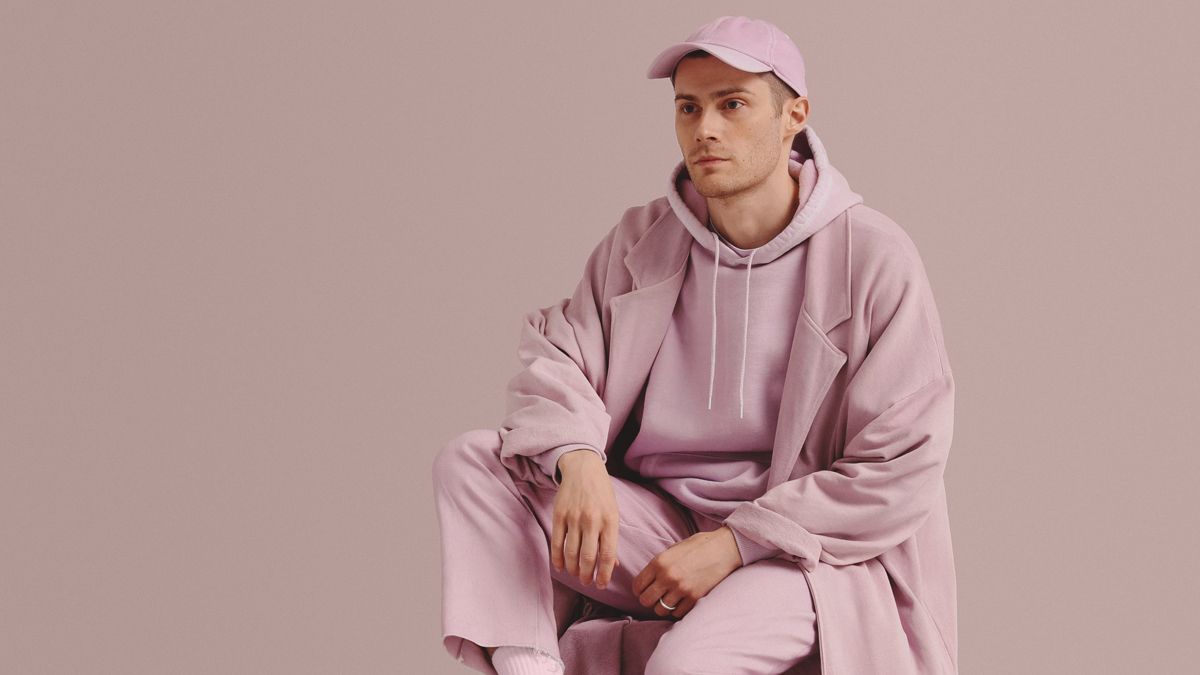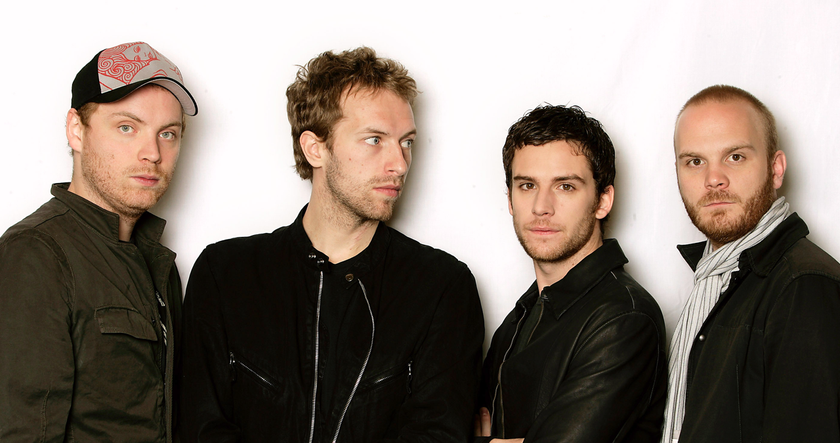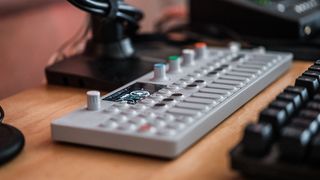15 questions for… RAC: "Don’t listen to the music industry! Ignore them"
The Grammy-winning producer looks back on his career and discusses his latest album

Portugal-born, US-raised André Allen Anjos is a Grammy-winning producer and songwriter, with no fewer than 250 remixes to his name, from Kings Of Leon to Lady Gaga, plus TV/film credits.
He recently released his new LP, Boy, through Counter/Ninja Tune.
1. That’s quite a CV you have there…
“I’ve been working professionally since 2007 and originally got my start doing remixes, but I’ve done everything including film and TV, and I did a ballet recently as well. I think I’ve done over 250 remixes at this point.
"In 2017, I won a Grammy Award for Best Remix and I’ve also released original work, which has taken over my life for the past five or six years. I’ve put out records on Interscope and Ninja Tune. Music is an emotional outlet for me.”
2. Do you have an overall musical or production philosophy?
“Generally speaking, I think the key to longevity in this industry is being yourself and doing your own thing and being unique. If you can do that and find an audience, then nobody can touch you. It doesn’t matter what’s happening in the rest of the world or the rest of the music ecosystem, if you find that core audience, they will love what you do forever, and you’re just being yourself too.
Get the MusicRadar Newsletter
Want all the hottest music and gear news, reviews, deals, features and more, direct to your inbox? Sign up here.
"I find that to be super important and that’s my ethos and barometer, however you want to put it, that’s how I judge everything I do. Does this make me personally happy? Is this interesting to me? Is this true to who I am? And usually, everything else falls into place.”
3. When and how did you discover computer music production?
“This was all pre-YouTube, pre-internet. I was always comfortable with computers, and I’ve been tinkering with PCs and breaking them since I was 10 or 11 years old. Naturally, music-making and computer music-making came hand in hand.
Computer music-making is the only way to make music as far as I’m concerned, and that’s coming from somebody who has way too much hardware!
"I grew up in Portugal and they had this knock-off cereal that my parents got, and these cereal boxes would come with CDs. One happened to come with a recording program which I think was called Hip Hop eJay or something like that. It was a piece of software I was playing around with; you could create loops, and it was limited to 120bpm. It would give you four beats or four clicks and it wouldn’t play the clicks so you had to internalise the rhythm of it and so it forced me to create these really short loops and really develop a sense of rhythm early on. It was helpful.
"Later on, I moved onto Cubase, and now I’ve been using Ableton for more than ten years - since version 6, I believe.
"Computer music-making is the only way to make music as far as I’m concerned, and that’s coming from somebody who has way too much hardware! I find it to be super important and super liberating.”
4. So how has it changed the way you work?
“It’s kind of been the only way I’ve ever worked, so it’s been super important. I did start in the box; I was doing a lot of VSTs and stuff, I’m talking early 2001/2002, with early virtual instruments and samplers and things like that. Maybe around 2005/2006, that’s when I got more into analogue synths and vintage synths in general.
"I bought my first Juno-60 for just $400 which is insane now. I also happened to get it with the MIDI adapter, so I never had to play anything, I just had to program it – it was awesome. I think I’ve used that synth on pretty much every track in my entire career.”
5. Tell us a little about the rest of the gear in your studio
“It’s a bit of a beast - I have a lot of equipment. I have a whole Apollo System, so two Apollo 16s, Apollo X8 and then a whole bunch of different preamps, anything from API, DVX, Neve 1073s, to the TG2s from Chandler. I like to collect preamps and vintage stuff.
"I have a Rhodes 54, a Wurlitzer, a Yamaha CP-70, and a whole collection of guitar amps/amp heads, like a Fender Deluxe reverb, Roland JC-120, Vox AC15, Fender Princeton.
"For drum machines, I have the Roland TR-808, Arturia DrumBrute and then a whole modular rig full of drum stuff as well, plus a whole bunch of other toys. I have a bunch of FM synths, and I also have a whole bunch of the new Roland boxes which I really like, especially the Jupiter-8. I’d rather have a little box than the giant $10,000 beasts, you know? It’s a little more affordable and the trade-offs in sound aren’t that big. The original Jupiter is amazing but I can get it close enough with this thing.”
6. What are your favourite five plugins?
“The UAD Galaxy Tape Space Echo emulator. I love the Space Echo so having that in plugin form is amazing. I actually use it more for the reverb tank emulation, not so much for the delay. The delay is amazing but I use it more for the spring.”
“The UAD EP-34 Tape Delay is amazing, super long tape delays which I love. I’ve used it on every track.”
“The Lexicon 224 emulation, also by Universal Audio. There’s this one setting that I use for everything, I think it’s called Vocal Play, and I just set the mids to 50-second decay. You can send anything to it and it opens up like it’s this massive stereo thing - an amazing plugin.”
“Goodhertz Vulf compressor and Wow Control. I think they’re in the same worlds, so I’ll lump those together. Goodhertz in general, make amazing stuff. It’s just the right amount of vibe that I’m looking for, and it makes things sound worse but intentionally. Arguably better, really, but the fidelity goes down intentionally – it’s meant to make it sound retro.”
“Retro Color by XLN, which I’ve used on literally everything. I use the tube distortion emulation: I love adding that on vocals and distorting everything. It’s pretty prevalent on my new album BOY.”
7. How does a track typically start?
“It’s kind of all over the place. I have my studio completely wired up, everything is always plugged in, already set, already hooked up to a preamp. I never have to do anything; all I have to do is turn it on and it should work.
"Sometimes stuff happens, but for the most part, everything is ready to go so I’m free to jump around the studio and play whatever and then whatever inspires, whatever gets the idea going, that’s what I’ll use and I’ll start the song there. I’m using a linear writing method, basically, so I’ll loop a section right apart and move on to the next area and start to build a structure and then from there start adding detail if that makes sense.”
8. Do you have any particular production tricks that you employ?
“I sidechain everything, I use group tracks and I use a template. It’s a very dialled-in template that I’ve been building for six or seven years and I think it’s the basis of my sound.
"Again, it’s in the spirit of keeping things super quick, as everything’s always plugged in, everything’s always routed. I already have a channel ready for it in Ableton so as soon as I open up Ableton, I already have a session ready to go. I don’t have to create a new track, it’s already there, already ready to record. All I have to do is record and it’s there, it’s done.
"With that said, I have things grouped by type. Obviously, synths are going to be in the same group, but then I’ll have sub-groups within those, so I’ll have synths that are maybe more pad-y or long notes that require more side tuning. I’ll have a separate group for that. Or sometimes when I’m using more plucky synths, I’ll have a group for that. And that’s already pre-mixed in a way, I already have my compression settings, all the ridiculous amounts of plugins on everything all ready to go, with a lot of tape emulation and I just process everything.
"That’s not to mention the processing coming on the way in, so often I’ll add some compression, especially if I’m recording through the 1073, I’ll definitely use the EQ to boost some of the highs. I have Shadow Hills Dual Vandergraph that I use for drums on the way in. That thing is just a beautiful drum compressor.
"So I’d say it’s just workflow stuff - make it as fast as possible. I don’t want to be dealing with MIDI routing when I have an idea.”
9. What’s on your wishlist studio wise?
“I’ve always been on the lookout for an ARP 2600, but then again I don’t really need synths, I have so many. In fact I have too many synths, which is blasphemy I know!
I have too many synths, which is blasphemy I know!
"The other one I have is the Korg MS10. I love that thing, I use it in everything. There’s always stuff I want; I’ll go with the ARP 2600 as it’s sort of a classic, very unique synth. I’d also really love to check out Deckard’s Dream. It looks amazing.”
10. What would you like to see developed in terms of studio technology and why?
“The whole quarantine thing has brought up the lack of real-time collaboration options. You can’t even livestream with anybody without latency. Nobody’s really solved that yet.
"That’s a tricky issue, I don’t claim to even know. I don’t mean to say it’s an easy problem solve – just something I’ve noticed. You can share session files but you can’t actually play in real time together.
"But this is the golden age for analogue synthesis. For subtractive synthesis, it’s amazing. Even in the plugin world, there are almost too many options. ”
11. You’ve been collaborating with a lot of people for the album…
“There’s a lot - pretty much everything on BOY is a collaboration, and that’s true for all of my albums. This album is unique in that sense because a lot of the artists, except for one or two, are younger than me, so it was interesting working with younger energy. [Younger] people are more willing to take risks and try different things and they aren’t afraid of failing, because they’re not so established that they only ever do one thing.”
12. What advice have you picked up from working in the studio?
“That’s a good question. I guess one of the benefits of doing remixes is that I get access to everybody’s files. Like getting Paul Epworth’s kick drum from Bloc Party’s Silent Alarm album, stuff like that, or getting some of the original Bob Marley stuff or U2 or New Order. I have had access to some amazing studio sessions and I feel like that has been such a great learning experience for me.”
13. What about advice from working in the music industry that you can pass on?
“This isn’t really advice coming from the industry, but I’d say don’t listen to the music industry! Ignore them. Generally speaking, be cautious about taking advice from industry people because they’re focused on the short term and you should really be focused on long term. There are obviously people who definitely look at the long term, but generally speaking most people are very near-sighted. ”
14. Tell us about your latest release and why people should get it...
“The new album BOY came out in May and I’m super proud of it. I should say this about every album of mine but I think this album is my best work so far. I’m really excited about it. It feels like a bit of a departure – or maybe I mean a natural progression. It’s about my childhood and I’ve worked with a lot of amazing artists, a lot of new people, and I’m really excited to get it out in the world. ”
15. Finally, what else have you got planned for the near future?
“We’re still waiting to see if the tour for the album will happen. I’m probably going to release an EP or something later this year, maybe early next year, I have a lot of material so I’m exploring that option.”


Computer Music magazine is the world’s best selling publication dedicated solely to making great music with your Mac or PC computer. Each issue it brings its lucky readers the best in cutting-edge tutorials, need-to-know, expert software reviews and even all the tools you actually need to make great music today, courtesy of our legendary CM Plugin Suite.

“If it wasn’t for that song, that would have been the end of the band”: How one track’s sudden gear-switch led Coldplay into their imperial phase

“He was like, ‘You’ve got it all wrong, man": Mumford & Sons reveal what Neil Young told them about the way they were approaching their live shows and album recordings










